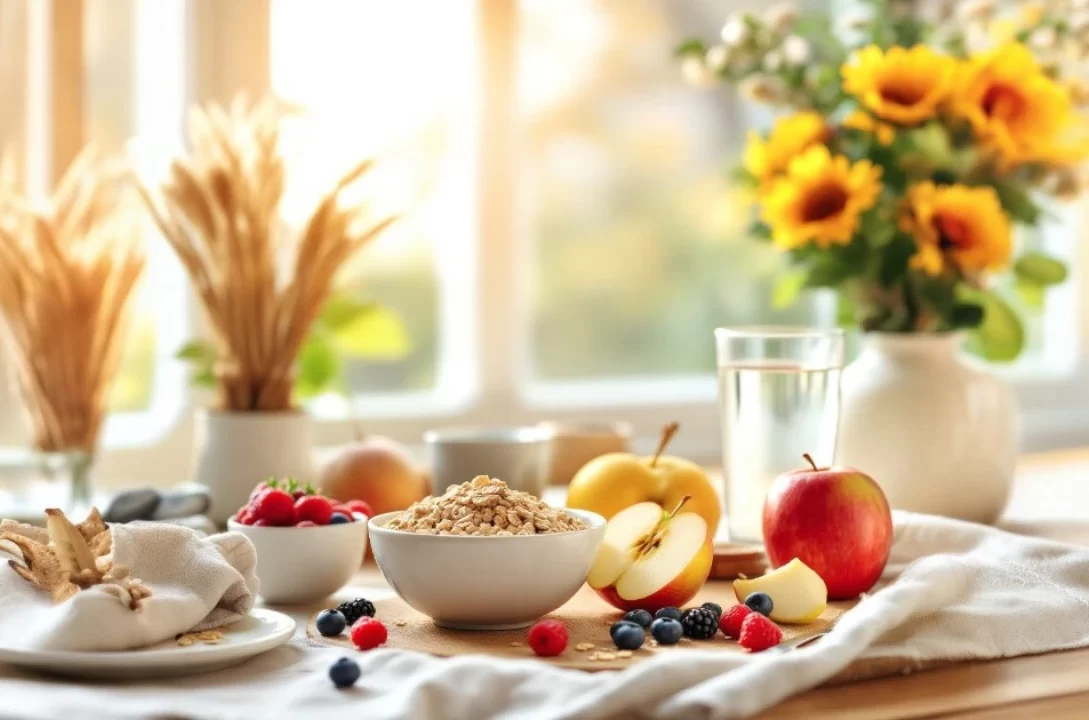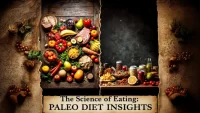Digestive health is the cornerstone of overall well-being, and fiber plays a starring role in keeping your gut happy and your body functioning optimally. Yet, many people fall short of their daily fiber needs, leading to digestive issues like bloating, constipation, and discomfort. In this comprehensive guide, we’ll explore the importance of fiber, how it improves digestion naturally, and practical tips to incorporate more fiber-rich foods into your diet. Let’s dive in!
What is Fiber and Why is it Important?
Fiber is a type of carbohydrate found in plant-based foods that your body can’t digest. Unlike other carbs, fiber passes through your digestive system mostly intact, providing a range of health benefits.
- Two Types of Fiber:
- Soluble Fiber: Dissolves in water to form a gel-like substance, helping to lower cholesterol and regulate blood sugar.
- Insoluble Fiber: Adds bulk to stool, promoting regular bowel movements and preventing constipation.
How Fiber Improves Digestion Naturally
Fiber is essential for maintaining a healthy digestive system. Here’s how it works:
- Promotes Regular Bowel Movements: Insoluble fiber adds bulk to stool, making it easier to pass.
- Supports Gut Health: Soluble fiber feeds beneficial gut bacteria, promoting a balanced microbiome.
- Prevents Digestive Disorders: A high-fiber diet can reduce the risk of conditions like diverticulitis, hemorrhoids, and irritable bowel syndrome (IBS).
The Health Benefits of a High-Fiber Diet
Beyond digestion, fiber offers a host of other health benefits:
- Weight Management: Fiber-rich foods keep you full longer, reducing overeating.
- Heart Health: Soluble fiber helps lower LDL (bad) cholesterol levels.
- Blood Sugar Control: Fiber slows the absorption of sugar, preventing spikes in blood glucose.
- Reduced Inflammation: A healthy gut microbiome can lower systemic inflammation.
How Much Fiber Do You Need?
The recommended daily intake of fiber varies by age and gender:
- Men: 38 grams per day (ages 19-50), 30 grams per day (51+).
- Women: 25 grams per day (ages 19-50), 21 grams per day (51+).
Most people only consume about half the recommended amount. Let’s change that!
Top Fiber-Rich Foods to Add to Your Diet
Incorporate these fiber-packed foods into your meals to boost your intake naturally:
1. Whole Grains
- Oats, quinoa, brown rice, and whole-wheat bread.
- Tip: Start your day with a bowl of oatmeal topped with berries and nuts.
2. Fruits
- Apples, pears, bananas, and berries.
- Tip: Leave the skin on fruits like apples for extra fiber.
3. Vegetables
- Broccoli, carrots, Brussels sprouts, and sweet potatoes.
- Tip: Add a variety of colorful veggies to your salads and stir-fries.
4. Legumes
- Lentils, chickpeas, black beans, and peas.
- Tip: Use legumes as a protein source in soups and stews.
5. Nuts and Seeds
- Almonds, chia seeds, flaxseeds, and sunflower seeds.
- Tip: Sprinkle seeds on yogurt or blend nuts into smoothies.
Tips for Increasing Your Fiber Intake
Transitioning to a high-fiber diet doesn’t have to be overwhelming. Follow these tips:
- Start Slowly: Gradually increase fiber to avoid bloating and gas.
- Stay Hydrated: Drink plenty of water to help fiber move through your digestive system.
- Read Labels: Choose products with whole grains and minimal processing.
- Snack Smart: Opt for fiber-rich snacks like raw veggies or a handful of nuts.
Common Mistakes to Avoid When Adding Fiber to Your Diet
While increasing fiber is beneficial, avoid these pitfalls:
- Overdoing It Too Quickly: A sudden increase can cause digestive discomfort.
- Ignoring Water Intake: Fiber needs water to work effectively.
- Relying on Supplements: Whole foods provide a better balance of nutrients.
The Link Between Fiber and Gut Health
Your gut microbiome thrives on fiber. Soluble fiber acts as a prebiotic, feeding the good bacteria in your gut. A healthy gut microbiome supports:
- Immune Function: 70% of your immune system resides in your gut.
- Mental Health: The gut-brain axis influences mood and cognitive function.
- Nutrient Absorption: A healthy gut improves the absorption of vitamins and minerals.
Fiber and Weight Loss: How It Helps
Fiber-rich foods are low in calories but high in volume, making them ideal for weight management. They:
- Increase Satiety: Keep you full longer, reducing the urge to snack.
- Reduce Calorie Absorption: Fiber binds to some fats and sugars, preventing their absorption.
FAQs About Fiber and Digestion
1. Can fiber cause bloating or gas?
Yes, if you increase your intake too quickly. Start slowly and drink plenty of water to minimize discomfort.
2. Are fiber supplements as effective as whole foods?
While supplements can help, whole foods provide additional nutrients and are generally more beneficial.
3. Can I get enough fiber on a low-carb diet?
Yes, by focusing on non-starchy vegetables, nuts, seeds, and low-carb fruits like berries.
4. How does fiber affect cholesterol levels?
Soluble fiber binds to cholesterol in the digestive system, helping to remove it from the body.
5. Is fiber safe for people with digestive disorders?
In most cases, yes. However, those with conditions like Crohn’s disease should consult a doctor before making significant dietary changes.
Conclusion: Take Charge of Your Digestive Health
Fiber is a powerhouse nutrient that improves digestion naturally, supports gut health, and enhances overall wellness. By incorporating more fiber-rich foods into your diet, you can enjoy better digestion, increased energy, and a reduced risk of chronic diseases.
Start small—add an extra serving of veggies to your meals, swap refined grains for whole grains, or snack on nuts and seeds. Your gut (and your entire body) will thank you. Take the first step toward better health today!
Useful Links:
- Harvard T.H. Chan School of Public Health: The Nutrition Source – Fiber
- Mayo Clinic: Dietary Fiber – Essential for a Healthy Diet
By prioritizing fiber in your diet, you’re not just improving digestion—you’re investing in your long-term health. Start today and experience the transformative benefits of a high-fiber lifestyle!











